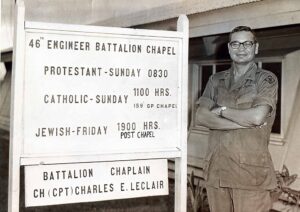
WASHINGTON (BP)–President Clinton vetoed educational reform legislation allowing tax-free savings accounts to be used for private schooling at the elementary and secondary levels.
Congress does not have the votes to override the July 21 veto, which had been expected since the Senate and House of Representatives passed the legislation in June. Each chamber fell short of the two-thirds majority needed for an override.
In a statement announcing his veto, the president said Congress had “chosen to weaken public education and shortchange our children.”
The bill is “bad education policy and bad tax policy,” Clinton said. “The bill would divert limited federal resources away from public schools by spending more than $3 billion on tax benefits that would do virtually nothing for average families and would disproportionately benefit the most affluent families. More than 70 percent of the benefits would flow to families in the top 20 percent of income distribution, and families struggling to make ends meet would never see a penny of the benefits.”
Sen. Paul Coverdell, R.-Ga., chief sponsor of the measure, charged Clinton with a “new low in shameless pandering. With President Clinton’s veto, America’s children lose and the union bosses win.”
A spokeswoman for Coverdell denied the president’s numbers on the benefits distribution, saying 70 percent of the savings would have gone to families with incomes of $75,000 or less. She also said the legislation was patterned after the Clinton-supported savings accounts for higher education.
The president “has denied millions of families help through his attempt to avoid offending the Washington-based unions who believe the system is more important than our children,” Coverdell said in a written statement. “President Clinton gets an ‘F’ on education reform.”
Clinton had spoken to the American Federation of Teachers meeting in New Orleans earlier in the week. The AFT and the National Education Association, the country’s largest teachers unions, oppose education savings accounts, as well as other school-choice proposals.
The Southern Baptist Ethics & Religious Liberty Commission endorsed the measure last August as one of its top 10 immediate legislative priorities.
The provision would have allowed parents or others to place as much as $2,000 a year for a child in an account with no tax on the interest if it is used for education. This post-tax money could be used for kindergarten through 12th-grade students at private, religious or home schools, but it also could be utilized for such expenses as tutoring, uniforms or home computers for public-school students. Such accounts already are permitted at the college level for as much as $500. The bill would have increased the higher-education maximum to $2,000.
Clinton called on Congress to approve his proposed education package, which focuses on such areas as smaller classes, repairing school buildings, higher academic standards and greater public-school choice.
The House originally passed the legislation in October, but the Senate adopted a different version in April, setting up the need for a conference committee to work out the differences for final passage.
In June, the Senate voted 59-36 for the conference report on the bill, with eight Democrats in the majority. The House vote on final passage was 225-197.
Last summer, Clinton removed the Coverdell plan from the budget deal.












